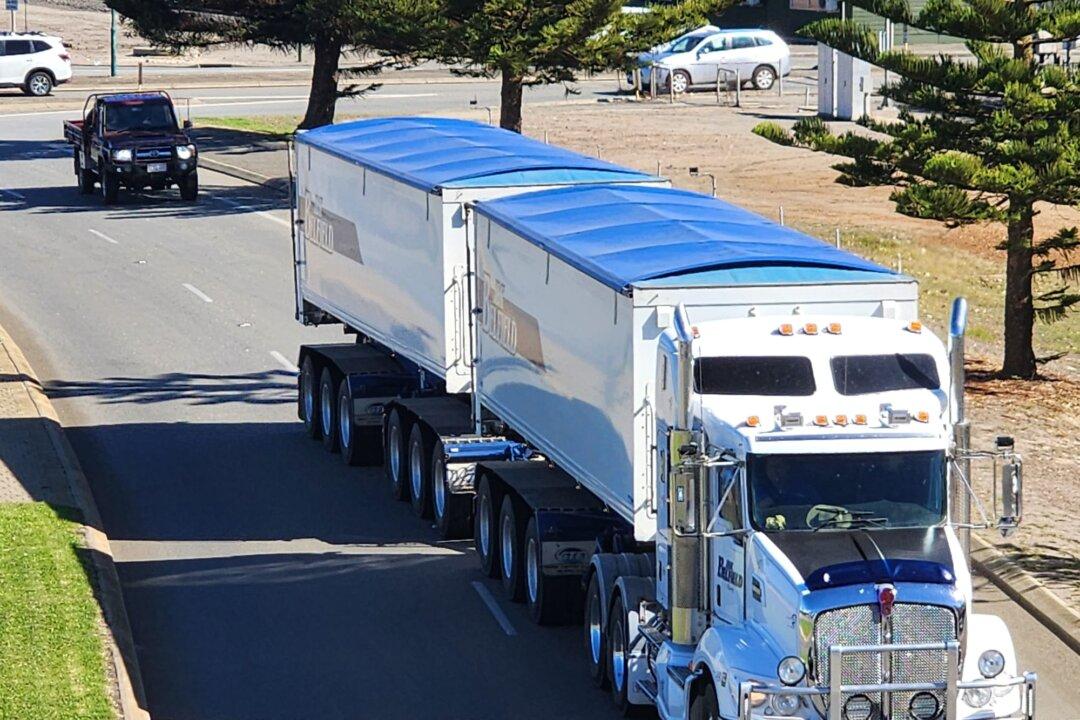A huge truck convoy has descended on Western Australian (WA) roads to protest the Labor government’s ban on live sheep exports.
More than 1,350 trucks registered to participate in the rally in Perth to send a message to the government about the proposed ban.





